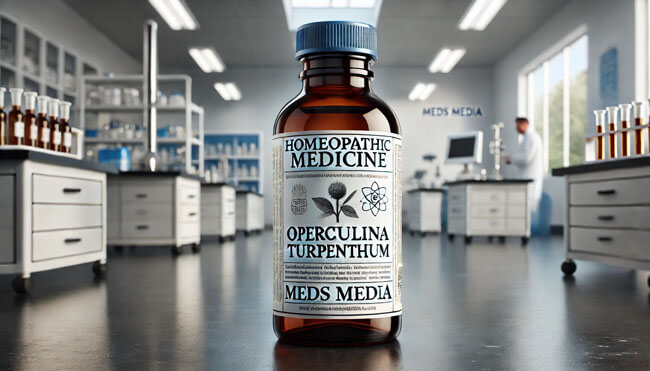THEA CHINENSIS ( THEA ) Homeopathic Uses & Treatment Insights
Thea Chinensis, also known as the tea plant, is a fascinating remedy in homeopathic medicine. This remedy is especially known for addressing nervous sleeplessness, heart troubles, palpitation, and digestive issues often found in long-term tea drinkers. This guide delves into the various symptoms Thea Chinensis addresses and provides homeopathic insights into its use.
Symptoms and Homeopathic Insights
Nervous System
Nervous Sleeplessness
Symptoms: Difficulty falling asleep, restlessness during the night, hallucinations of hearing.
Materia Medica Insights: Thea Chinensis is renowned for its ability to calm the mind and body, promoting restful sleep. It’s particularly beneficial for individuals who experience a racing mind and restless body at night. The remedy helps in reducing the hallucinations of hearing, which can often disturb sleep.
Headaches
Symptoms: Sick headaches radiating from one point, cold damp feeling at the back of the head.
Materia Medica Insights: This remedy is effective in treating headaches that originate from a specific point and radiate outward. The cold damp sensation at the back of the head is a notable symptom that Thea Chinensis addresses, providing relief and comfort.
Cardiovascular System
Heart Troubles and Palpitation
Symptoms: Anxious oppression, precordial distress, rapid and irregular pulse, fluttering sensation, unable to lie on the left side.
Materia Medica Insights: Thea Chinensis offers significant relief for heart-related issues. It helps manage the feeling of anxious oppression and distress in the precordial area (the region over the heart). Patients who experience a rapid, irregular, and intermittent pulse, along with a fluttering sensation in the chest, can find this remedy particularly beneficial. It also alleviates discomfort when lying on the left side.
Digestive System
Dyspepsia
Symptoms: Sinking sensation at the epigastrium, faint and gone feeling, craving for acids, sudden production of wind in large quantities.
Materia Medica Insights: Thea Chinensis is highly effective in treating dyspepsia, a condition characterized by indigestion and discomfort in the upper abdomen. The sinking sensation at the epigastrium and the faint, gone feeling are specific symptoms addressed by this remedy. It also helps curb cravings for acids and manages the sudden production of wind, which can cause bloating and discomfort.
Abdomen
Borborygmi and Hernia Liability
Symptoms: Loud stomach rumbling (borborygmi), tendency towards hernia.
Materia Medica Insights: This remedy is known for reducing borborygmi, the loud rumbling noises caused by gas moving through the intestines. Additionally, it helps in managing the liability to hernia, providing relief and strengthening the abdominal area.
Women’s Health
Ovarian Soreness and Tenderness
Symptoms: Soreness and tenderness in the ovaries.
Materia Medica Insights: Thea Chinensis is beneficial for women experiencing soreness and tenderness in their ovaries. It helps in alleviating discomfort and promoting overall reproductive health.
Sleep Disorders
Daytime Sleepiness and Nighttime Restlessness
Symptoms: Sleepy during the day, sleepless at night with vascular excitement and restlessness, dry skin, horrible dreams that cause no horror.
Materia Medica Insights: This remedy helps balance the sleep-wake cycle. It reduces daytime sleepiness and promotes restful sleep at night by calming vascular excitement and restlessness. Thea Chinensis also addresses the issue of dry skin and manages horrible dreams, ensuring a peaceful night’s sleep.
Modalities
Worse
- At night
- Walking in open air
- After meals
Better
- Warmth
- Warm baths
Relationship
Antidotes: Kali hypophos, Thuja, Ferr, Kali hyd (Material doses for tea-taster’s cough).
Dosage
Potency: Third to thirtieth potency. Theine: 1/4-1/2 grain hypodermically for sciatica and supra-orbital neuralgia.
Comprehensive Guide to Homeopathy Potencies
Disclaimer:
This information is for educational purposes only and is not a substitute for professional medical advice, diagnosis, or treatment. Always consult your physician or a qualified healthcare provider regarding any medical condition. Use homeopathic remedies under the guidance of a certified practitioner.
Why our homeopathy guides are different
We break down classical homeopathic ideas, remedy personalities, and prescribing tips into clear explanations so students and patients can follow along without jargon.
This homeopathy site is for study and education only. For any health concern, always work with a qualified doctor or registered homeopathic practitioner.
Similar Posts You may also like

NITRO MURIATICUM ACIDUM HOMEOPATHIC MATERIA MEDICA | Uses, Symptoms & Benefits Guide

NITRI SPIRITUS DULCIS HOMEOPATHIC MATERIA MEDICA | Uses, Symptoms & Benefits Guide

NUPHAR LUTEUM HOMEOPATHIC MATERIA MEDICA | Uses, Symptoms & Benefits Guide

NUX MOSCHATA HOMEOPATHIC MATERIA MEDICA | Uses, Symptoms & Benefits Guide

NUX VOMICA HOMEOPATHIC MATERIA MEDICA | Uses, Symptoms & Benefits Guide

NYCTANTHES ARBOR TRISTIS HOMEOPATHIC MATERIA MEDICA | Uses, Symptoms & Benefits Guide

OCIMUM CANUM HOMEOPATHIC MATERIA MEDICA | Uses, Symptoms & Benefits Guide

OENANTHE CROCATA HOMEOPATHIC MATERIA MEDICA | Uses, Symptoms & Benefits Guide

OLEUM ANIMALE AETHEREUM: HOMEOPATHIC MATERIA MEDICA – Symptoms Guide

OLEUM JECORIS ASELLI: HOMEOPATHIC MATERIA MEDICA – Symptoms Guide

OLEUM SANTALI: HOMEOPATHIC MATERIA MEDICA – Symptoms Guide

OLEANDER: HOMEOPATHIC MATERIA MEDICA – Symptoms Guide

ONISCUS ASELLU: HOMEOPATHIC MATERIA MEDICA – Symptoms Guide

ONOSMODIUM VIRGINIANUM: HOMEOPATHIC MATERIA MEDICA – Symptoms Guide

OPIUM: HOMEOPATHIC MATERIA MEDICA – Symptoms Guide

OPERCULINA TURPENTHUM: HOMEOPATHIC MATERIA MEDICA – Symptoms Guide

OPUNTIA FICUS: HOMEOPATHIC MATERIA MEDICA – Symptoms Guide
